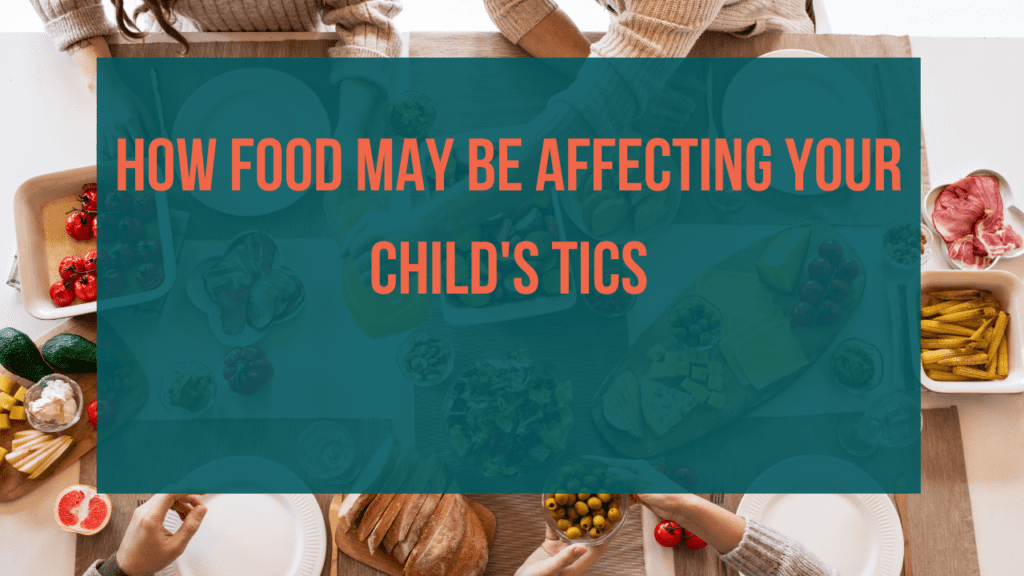“You’re sitting there, eating your favorite meal, when you notice a tic in your child’s eye. Your first thought is that they are just being silly and trying to get attention from you. But then the tics turn into a constant tapping of their feet and hands. You wonder if they are allergic to something, but it doesn’t seem like anything has changed with their diet.”
“In reality, what may be happening is that the food you are eating could be affecting how many tics your child has.” “Maybe it’s time for some food sensitivity testing?”
First of all, let’s get clear on what a tic is…
Tics are brief, sudden movements or sounds. They may happen at random times and many times each day. A tic is hard to stop, but you are awake and aware during a tic. Tics do not cause you to lose consciousness.
What do you need to know about food and tics?
Food sensitivities are a delayed reaction to certain foods, and It can take from 48-72 hours for the body to react to something you are sensitive to. That is why food sensitivities are hard to pinpoint without testing. For example, people do not associate what they ate on Monday with how they feel on Wednesday.
Food sensitivities involve a delayed immune system reaction, and the symptoms vary from person to person. What bothers me may not bother you! For us, gluten, dairy, eggs, and peanuts are a colossal issue. The symptoms my son experiences when exposed to these foods, cause an inflammatory response that involves ticking. We also experienced throat clearing, OCD, eye blinking, noisemaking… and we get a lot of emotional rage and anxiety. For us, food sensitivities impact the brain. However, some people experience very different symptoms like sleepiness, depression, tummy aches, headaches, and more!
All the magnesium and B6 in the word may not help stop tics if there are food sensitivities at play.
Here are my top 3 tips for managing your child’s diet when they have a diagnosis of ADHD, OCD, or a tic disorder
- When it comes to food and tics, the best rule of thumb is that if you have a child with tic disorder or any other diagnosis related to hyperactivity, impulsivity, or inattention (ADHD, OCD), they should avoid sugar. Sugar will increase their symptoms because dopamine levels are increased, which can lead to more tics. This means no chocolate milk for your kids!
- Avoid inflammatory foods like gluten and dairy that can cause systemic inflammation leading to tics.
- Eat nutrient-dense foods at every meal to ensure your child is getting the nutrients they need to fuel their body. Keep in mind that when your child’s body is under stress that they will use more nutrients. Processed, packaged foods that come in a box, bag, or bottle are usually void of nutrients and do not provide your child with what they need to function.
Many people find that eliminating trigger foods from their diet while adding high-quality protein sources such as turkey breast or chicken breasts, which are full of amino acids, has helped significantly reduce the number and severity of tics, ADHD, and OCD symptoms.
The human body is such a complex organism that it can be challenging to pinpoint food sensitivities. However, one of the best ways to make sure your child has an optimal diet is through testing them for their individual needs.
Pinpointing food sensitivities is difficult, but it’s essential to do so as one of the best ways to make changes for a child.
Moreover, pinpointing food sensitivities can be complex and time-consuming; however, they are often necessary to properly regulate your children’s diet without problems that could affect their overall health. That is why I always recommend food sensitivity testing.
If you are tired of conventional treatments and you are looking for more info on Natural solutions grab the Tic Disorders Cheat Sheet HERE

